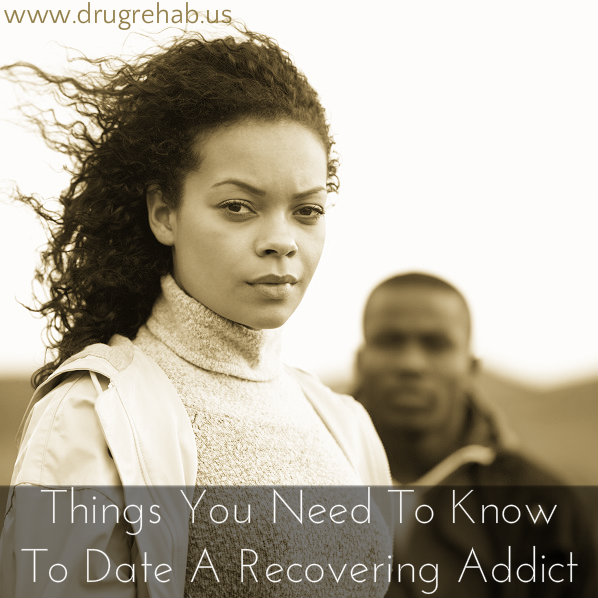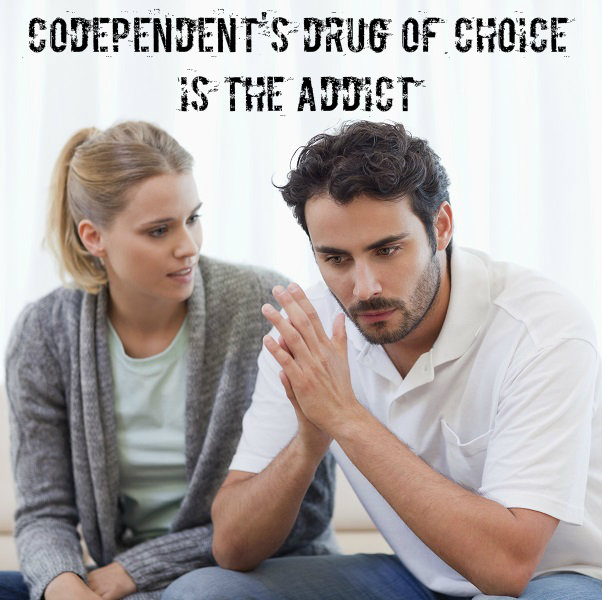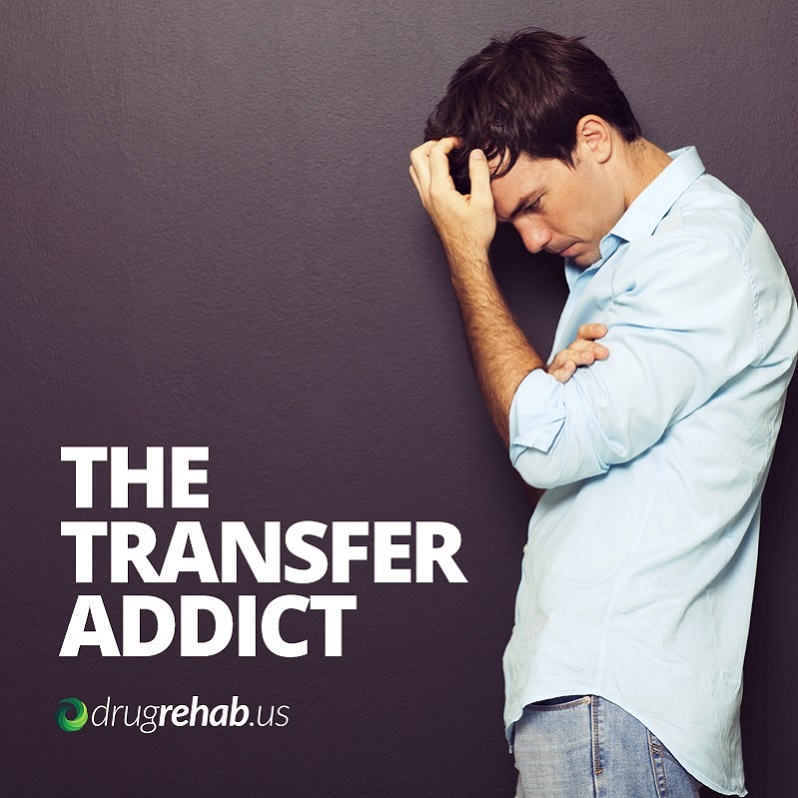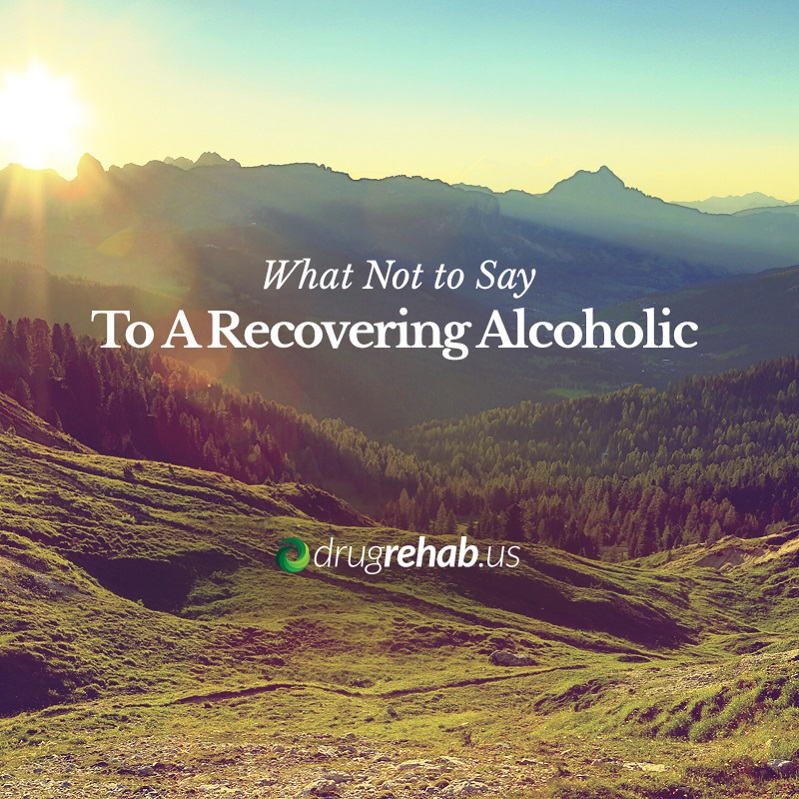07 May 2015
The Truth About Methadone
Methadone maintenance is a treatment strategy for heroin addiction that has been helping people for decades. Methadone, like heroin, is an opioid drug. As such, it can help addicts maintain sobriety from heroin without experiencing the devastating withdrawal symptoms that lead so many back to the drug. Many people misunderstand methadone and believe that it is just another form of drug addiction.
Learn the truth about this effective harm reduction strategy with these methadone myths and facts.
Methadone Myths And Truths
 Myth: Methadone is just a substitute for heroin. Although it is also an opioid, methadone is not a substitute drug. It is a valid medical treatment for heroin addiction. What happens in detox from drugs, particularly from heroin, is withdrawal so terrible that few people can experience it without going back to using. For a drug as serious as heroin, withdrawal and cravings last for a long time. Methadone helps mitigate those symptoms so that addicts can resist the urge to go back to heroin.
Myth: Methadone is just a substitute for heroin. Although it is also an opioid, methadone is not a substitute drug. It is a valid medical treatment for heroin addiction. What happens in detox from drugs, particularly from heroin, is withdrawal so terrible that few people can experience it without going back to using. For a drug as serious as heroin, withdrawal and cravings last for a long time. Methadone helps mitigate those symptoms so that addicts can resist the urge to go back to heroin.
Myth: People using methadone are methadone addicts. Methadone maintenance is a medical treatment, and anyone going through this treatment is doing so under the direction of a doctor. Using methadone in this way does not simply mean that a person’s addiction is transferred from heroin to methadone. While it is accurate to say that a person in treatment is physically dependent on methadone, he is not addicted. He is not experiencing negative consequences from the fact that his body needs the methadone. This is the line between dependence and addiction and between methadone maintenance and heroin addiction.
Myth: Methadone makes you gain weight and rots your bones and teeth. Substance use and abuse cause a number of ill health effects, but the idea that methadone maintenance is bad for your health is not completely true. Methadone can cause dry mouth, which can increase the risk for tooth decay. Proper dental care mitigates this risk. An incorrect dosage can cause bone pain, but it does not cause bone decay. Finally, weight gain can occur with methadone maintenance, but only because getting off heroin means a return to a normal appetite.
Myth: Methadone causes sterility. This is absolutely untrue. It can sometimes lower testosterone in men, but this does not cause a man to be sterile. It can also be diagnosed and easily treated when it does occur.
Myth: Methadone cures heroin addiction. It would be nice if this were true, but in reality there is no cure for any type of addiction. Methadone maintenance is a medical treatment for heroin addiction. Success rates for opiate addiction treatments vary based on the individual, but methadone maintenance works well for many addicts. With this kind of medical treatment as well as therapy and support, many people are able to stay sober.
Methadone often gets a bad rap as a drug used to treat a drug addiction, but the truth is that it has been used for decades because it really does help people addicted to heroin.
Check Out Our Other Informative Addiction Medication Blogs
30 Mar 2015
Do You Have An Addictive Personality?
You may have heard the term addictive personality when used to describe anything from heroin addiction to an obsession with powdered donuts. It may be overused, but there is truth in the phrase. We know that people with a family history of addiction are more likely than others to develop an addiction of their own. We also know that although there is no single gene causing addiction, there are several genetic factors that contribute to the disease.
Signs You Have An Addictive Personality
Do you have risk factors for addiction? Do you have an addictive personality? Here are some signs that you might.
You’re A Thrill Seeker
 Adrenaline junkies, those who look for excitement and new experiences to get a kick, are more likely to become addicted to substances. In many ways this kind of behavior is healthy. Maybe you are a world traveler because learning about different cultures is exciting for you, or you channel your need for a thrill into activities like sky diving or competitive sports. Thrill-seeking can be a great way to try and experience new things, but sometimes this means trying drugs.
Adrenaline junkies, those who look for excitement and new experiences to get a kick, are more likely to become addicted to substances. In many ways this kind of behavior is healthy. Maybe you are a world traveler because learning about different cultures is exciting for you, or you channel your need for a thrill into activities like sky diving or competitive sports. Thrill-seeking can be a great way to try and experience new things, but sometimes this means trying drugs.
The good news is that adrenaline junkies are more likely than others to experiment with drugs, but without other risk factors they tend to remain only recreational users. They don’t become addicted in most cases, unless they also exhibit one or both of the personality traits below.
You Are Impulsive
Impulsivity means acting without thinking about the consequences. Some people would describe this trait as poor self-control. Maybe you are trying to lose a few pounds, but you get dessert at a restaurant anyway. Or you have that extra drink at a party even though you know you have to get up early the next morning. You might say something without thinking and end up putting your foot in your mouth. These are all signs of being impulsive.
Impulsivity combined with the need to seek out thrills and exciting experiences correlates strongly with drug or alcohol addiction. If you are an adrenaline junkie but have good self-control and are not impulsive, you might try drugs but not become addicted. Similarly if you tend to be impulsive, but you like to stay safe and not look for exciting thrills, you are unlikely to try drugs in the first place. If you seek out thrills and also tend to act without thinking, you are at a high risk for trying drugs and getting hooked as a result.
You Are Compulsive
Being compulsive means engaging in a behavior repeatedly in spite of negative consequences. This is a classic hallmark of addiction, but it can apply in many other situations. For example, you are compulsive if you bite your nails and cuticles until they bleed and get infected. You know it’s bad for you, but you keep doing it. Another way to think of compulsivity is having bad habits. Addicts use over and over again in spite of all the harm it causes.
How To Battle An Addictive Personality
Impulsivity, thrill-seeking and compulsivity have been found to be three common traits among addicts. If you recognize all of them in yourself, you may describe your personality as addictive, but it doesn’t mean you have to become an addict.
Fight your addictive instincts by being aware of your feelings, behaviors and choices. Check your impulsive decisions and analyze your bad habits. Figure out what your motivations are and work to change bad habits that you already have. Learn to cope with your negative emotions in healthier ways. If you are conscious about what you do and why, you don’t have to let your personality traits dictate the outcome of your life.
You just started seeing this great guy. You went on a few dates, and they were some of the best dates you’ve ever experienced. You’re thinking this could be serious. This could be the real deal. And then he drops the bombshell: he’s a recovering addict. Do you run away or do you take a chance on this guy who seems so wonderful?
Things You Need To Know To Date A Recovering Addict
Before you make a choice to continue or break it off, there are some important things you need to know.
Recovering Addicts Can Be Great Partners
 If your mind is flooding with negative thoughts and all the possible things that could go wrong in dating a recovering addict, you haven’t considered one thing: recovering addicts have been through intensive therapy. They have learned important skills for having healthy relationships, like how to communicate effectively and how to cope with stress in positive ways. Addicts in recovery have committed to sobriety and to being honest. These aren’t terrible traits to have in a partner.
If your mind is flooding with negative thoughts and all the possible things that could go wrong in dating a recovering addict, you haven’t considered one thing: recovering addicts have been through intensive therapy. They have learned important skills for having healthy relationships, like how to communicate effectively and how to cope with stress in positive ways. Addicts in recovery have committed to sobriety and to being honest. These aren’t terrible traits to have in a partner.
Addicts In Recovery Relapse
No matter how strong the commitment to sobriety, addicts in recovery are likely to relapse at least once. It’s important that you understand addiction is a chronic disease, which means that relapse is possible. Be realistic about this fact and decide if you are prepared and willing to help your partner through a difficult time. Will you be ready to support him after a relapse? Will you be able to cope with seeing him under the influence?
A Recovering Addict’s Past Is Shady
So your new guy dropped the bomb that he is an addict in recovery. That is likely to be the first of a few bombshells. He gave you the big one, and he probably won’t give you all the other details of his past right away. You will need time to process and get ready for the next. Many addicts have shameful things in their pasts. He was dependent on drugs, and he may have done other things he now regrets. Be prepared to hear that he hurt people, that he has a criminal record or that he did other bad things. Then remember that the past is in the past. He can’t change the past, but he can make amends.
Recovering Addicts Require More Support
In any relationship you need to support your partner. Your recovering addict will need more support than most partners would. He may need you to refrain from drinking around him. He may not be able to go to parties without you by his side. You may need to make allowances for him to go to meetings or therapy when you would rather do something else. Doing these things means supporting him in his sobriety. He needs this extra support to have a strong sobriety and to avoid relapse. Be prepared to give and to be more sensitive.
Love Isn’t Always Enough
Perhaps the most difficult lesson about addiction and dating is that love really doesn’t conquer all. You may fall hard for this guy and be prepared to take on his past and his recovery, but your relationship might still fail. Maybe he will relapse and become a different person, stealing from you or getting violent. Maybe you will find that the level of support he needs is more than you can give. If you are prepared for all of these possibilities, then you may be ready to start dating an addict in recovery. Remember to take care of yourself and not to lose who you are in the process of being with a recovering addict.
Are You Enabling Your Partner’s Addiction? – Learn The Signs Of Enabling & How To Stop!
12 Jan 2015
Codependents And Their Drug Of Choice…The Addict
Codependents are people who love addicts or alcoholics. While the alcoholic or addict is obsessed with his or her drug of choice, the codependent’s drug of choice is the addict. The addict is obsessively chasing his or her next high while the codependent is addicted to the drama and the challenge of bringing everything under control.
If The Addict Gets Sober It Doesn’t Mean The Problems Go Away
 It’s not intentional, of course. If you’re involved with an addict, you probably believe with all your heart that once he or she gets sober, everything will be fine.
It’s not intentional, of course. If you’re involved with an addict, you probably believe with all your heart that once he or she gets sober, everything will be fine.
You believe the root of all of your problems is the addiction, and if the addict would only stop abusing drugs, life could go back to normal. So you keep trying to fix him.
It’s not that simple. Even if the addict gets sober, you will continue to relate to each other in unhealthy ways. In particular, you will probably continue to try to control or obsess about the addict even when he isn’t revolving his life around drugs.
Involved With One Troubled Person After Another
Many codependents find that even if they end a relationship with one addict, they immediately get involved with another one. If you have codependent tendencies, you may wonder why you seem to get involved with one addict or troubled person after another. You seem to be perpetually drawn to people who are emotionally unavailable. For one thing, thinking about them and their problems allows you to avoid thinking about your own.
Sooner or later, every codependent has to face the fact that the real problem isn’t all about the addict.
Characteristics Of Codependents
People who have a problem with codependency share certain characteristics that offer clues to why they are drawn to troubled people. Here are some of them.
- You put the needs of others before your own – Codependents are quick to put their own needs aside so that they can be constantly available to other people. The root of this tendency is low self-esteem.
- You desperately seek solutions outside yourself – Drug addicts look for substances outside themselves to fix their problems and alter their moods. As a codependent, so do you. You look for people to revolve your life around and alter your mood.
- You tend to take on too much responsibility – This leads you to do for others many things that they should be doing for themselves. You do more than your share most of the time, and eventually you feel overwhelmed and resentful.
- You have a deep fear of abandonment – You are terrified of being alone. In your relationships, you may put up with treatment that you know is unacceptable, but you are more afraid of being abandoned than you are of being abused. Being left alone is one of the worst things you can imagine.
- You constantly try to please people and you feel unappreciated – You want people to like you so much that you’re always trying to please them. You give and give and give some more, but no one seems to notice or appreciate you. You avoid asserting your own needs or getting into any kind of conflict.
- You lose yourself in relationships – You get so wrapped up in your relationships that you can barely remember who you are. You might give up your hobbies so you can be available to your loved one, or you might even change your core beliefs. Your conversations are always about what your loved one is doing, what his interests are, and what he wants. You rarely talk about yourself or think about yourself.
Recognize You Have A Problem And Get The Help You Need…And Deserve!
Codependents put a great deal of effort and energy into other people’s lives, but have a great deal of trouble focusing on their own. They get caught up in other people’s emotions, feeling happy when others are happy and sad when others are sad.
If you are a codependent, you are probably so other-focused that you don’t even realize you have a problem. Recognizing you have a problem is the first step toward recovery. Help is available through therapy and support groups such as Alanon. If you commit to getting past codependence, you will learn to focus on yourself and your own life, and to put your energy into changing what you can—yourself.
Believe In Yourself – You Are Worth It & Always Have Been…Always
25 Dec 2014
How To Cope With Protracted Withdrawal
You’ve been through rehab and counseling for your addiction. You went through the terrible symptoms of acute withdrawal during detox when you thought you would never get relief. You are in recovery now, attending support group meetings and trying to carry on with your life. You were sure that by this point in your sobriety you would be feeling better, like a whole new person.
Unfortunately, you feel terrible. You could be going through protracted withdrawal, the persistence of withdrawal symptoms after they should have cleared. Instead of giving in to the urge to use in order to find relief, work through these symptoms and stay sober.
Protracted Withdrawal
What you experience during detox is acute withdrawal. Your body reacts to the elimination of the drug or alcohol and leaves you with intense cravings and other awful symptoms. Many addicts give in during this phase, especially if they have no support to get through it. Once you have completed detox, you probably thought those feelings and symptoms were over. If they persist at a lower intensity, you could be experiencing protracted withdrawal.
Symptoms Of Protracted Withdrawal
 Symptoms of this condition have been seen with opioids, methamphetamine, marijuana, benzodiazepines and cocaine and include:
Symptoms of this condition have been seen with opioids, methamphetamine, marijuana, benzodiazepines and cocaine and include:
- Insomnia
- Depression
- Fatigue
- Anxiety
- Cravings
- Difficulty concentrating
- Memory difficulties
- Irritability
- Loss of sex drive
- Unexplained physical pains
How an addict experiences protracted withdrawal is unique, but these are some of the possible symptoms that have been recorded. You may be feeling any of these or just feeling generally bad and down.
Tips On How To Cope With Protracted Withdrawal
Talk To Your Doctor
If you still aren’t feeling well long after detox, talk to your doctor and any other health professionals with whom you are working. Your doctor can go over your symptoms and eliminate any other possible health problems that could be causing your symptoms. If your health team determines that you are going through protracted withdrawal, there are things you can do to speed up your healing process and help you get through the struggle without giving in to a relapse.
Understand It Will Not Last Forever
First and foremost, understand that it will not last forever. It may seem like it now, but protracted withdrawal will ultimately end. To assure yourself of this, read up on the subject and talk to your doctor and therapist about your concerns. If any of your symptoms are related to mental health issues, such as depression or anxiety, seek professional help. Work with your therapist or a new specialist to target these particular problems. Your doctor may also be able to prescribe medications to help. It may seem counterintuitive for an addict, but there are new developments in drugs that can help opioid and alcohol addicts in particular.
Partake In Healthy Habits
Train yourself to engage in healthy habits. Being healthy will help you feel better even as your withdrawal symptoms persist. Anything you can do to improve your physical health will help. This means getting enough sleep every night, eating a nutritious and complete diet and getting plenty of regular exercise. Social support is helpful too, so enlist a buddy to make positive health changes with you or at least to exercise with you.
Continue Addiction Treatment And Be Patient
Finally, be sure to continue with your addiction treatment. Even if you completed a lengthy stay in rehab, you know that addiction requires follow up and regular care. Go to support group meetings and continue with regular therapy sessions. Remember to be patient. You are going through a difficult time, and you probably expected to feel better by now. You will feel better. Put in the work, stay healthy and continue your treatment.
Is It Post-Acute Withdrawal Syndrome Instead? Find Out Now!
Don’t Beat Yourself Up – Everyone Is Different And Will Recover Differently!
For Additional Help – Call Us Now!
18 Dec 2014
The Fight Against Stigma For Pregnant Addicts
Babies born to addicted mothers can face a very difficult start in life. When a pregnant woman is addicted to drugs and continues to use, her baby will come into this world with drugs in his or her system. A newborn who is exposed to drugs such as opiates or narcotics while in the womb will be born with a variety of problems know as neonatal abstinence syndrome.
Drugs like heroin, cocaine or oxycodone pass through the placenta from mother to baby. During pregnancy, the growing baby develops into an addict. Upon birth, the baby is immediately craving drugs, and doctors will have to give the baby drugs that are the same or very similar to the ones taken by the mother to try to ease inevitable withdrawal symptoms. Drug-addicted babies are typically inconsolable. Symptoms of neonatal abstinence syndrome can last from several weeks to several months.
In a perfect world, women who are addicted to drugs would be able to quit using before ever getting pregnant. But it’s rarely that easy to discontinue using drugs. Even when an addict knows she is pregnant and may be harming her child, the compulsion to do drugs is still there.
Difficulties Of Being Pregnant And Addicted
 It’s a growing problem, and there aren’t easy solutions. Programs aimed at helping pregnant women overcome their drug problems are often discontinued or reduced because of funding cuts. Even when programs are available to help pregnant addicts, the women are often afraid to reach out for help.
It’s a growing problem, and there aren’t easy solutions. Programs aimed at helping pregnant women overcome their drug problems are often discontinued or reduced because of funding cuts. Even when programs are available to help pregnant addicts, the women are often afraid to reach out for help.
There is a lot of stigma attached to addiction in pregnancy. Non-addicts are quick to assume that addiction is a choice, and that an addict could stop using if she really wanted to. In some states, using drugs while pregnant may even be considered a crime. In Tennessee, for example, drug use while pregnant is classified as an assault.
When a pregnant addict is arrested instead of offered help, it gives a message to other pregnant addicts that it may be dangerous to try to get help. Many try to detox on their own, which can be extremely dangerous and even life-threatening. Fear of legal consequences, such as losing custody of their other children, stops many women from reaching out for help from medical professionals. Another fear is that the newborn baby will be taken away at birth. So a large number of pregnant addicts continue to suffer in silence.
De-Stigmatizing Addiction In Pregnancy
There are few families that haven’t been touched by addiction in some way. Yet most pregnant addicts are unsure whom it would be safe to talk to, if anyone. Many of them suffer through their entire pregnancies scared and alone. They may continue to abuse drugs because it is the only life they know, or they may try to quit drugs without help, a goal that is rarely successful.
Addiction is frequently misunderstood, and often people see it as a moral failing rather than an illness. This judgmental attitude is intensified when an unborn child may be affected.
If stigma could be removed from addiction in pregnancy, both mothers and babies would benefit. If pregnant addicts were free to seek help and know they wouldn’t be judged or condemned, they could approach motherhood with strength and courage rather than fear and shame.
When pregnant addicts avoid getting help, it is really a form of denial. Addicts and their families may try to pretend that if they ignore the problem of addiction, it will go away. Pregnant addicts learn to lie to their doctors and hide any evidence that they are actively abusing drugs.
Stigma prevents addicts from obtaining good prenatal care and results in babies who are born addicted. These babies may also be born with other medical problems. Many of these problems would be prevented if the mothers were free to get help and didn’t have to live in fear of asking for it.
Few understand the hold addiction has on people and how hard it can be to overcome the compulsion to turn to mind-altering drugs. Addiction is a disease, and women who suffer from it deserve to have options for recovery without fear of stigma or judgment. So do their unborn children.
Why Do Women Continue To Drink During Pregnancy? – Understand More About Why Woman Use While Pregnant
24 Nov 2014
The Transfer Addict
There is an often-overlooked type of addict who struggles just as much as any other. She is unlikely to get help. She is unlikely to recognize her own problem or to have her loved ones see it in her. She is the transfer addict and she flies under the radar choosing one addiction, reining it in and gaining control and then moving on to the next one. She fools herself and those around her, but she is a true addict and she needs help.
Substitute Or Transfer Addictions
 Changing from one addictive substance or behavior to another is not uncommon for an addict. But most who engage in this behavior are obvious, at least to those around them if not to themselves.
Changing from one addictive substance or behavior to another is not uncommon for an addict. But most who engage in this behavior are obvious, at least to those around them if not to themselves.
Addicts in recovery are susceptible to developing a substitute addiction because they are trying to replace their compulsive urges with other activities. An addict might, for instance, start running as a healthy distraction from the urges to relapse.
Setting and achieving race goals and getting physically fit is a great way to stay sober, but an addict might turn this into an unhealthy obsession and develop a new addiction to exercise or running.
Another form of the transfer or substitute addiction is when an addict still in the throes of the disease thinks changing to a less serious substance means regaining control.
For instance, a cocaine addict might switch to marijuana use. This is a common way in which an addict transfers his high, but it is simply the substitute of one substance for another and does not represent control over an addiction.
The Low-Flying Transfer Addict
While substitute addictions are not uncommon, there is another type of addict that flies low and under the radar. This addict has one unhealthy obsession, maybe drinking too much, but she is able to get it under control before it becomes a full and serious addiction.
She assures her friends and family that, yes, she probably drinks more than is good for her, but she has it under control. She does this, not by recognizing her obsessive behaviors, but by transferring them to something new.
She stops drinking and starts obsessing over food. She binge eats and starts gaining weight. Before long she is overweight, but decides to rein it in and get it under control. She assures everyone she is well by changing her diet and starting an exercise regime. She loses the weight, but now she is addicted to working out and meeting that next exercise goal.
This transfer addict may never let herself reach the level of full-blown addiction to one substance or behavior, but she displays all the compulsions of an addict. Her compulsive behaviors evolve and change, but she never copes with them. They never go away.
Breaking The Cycle Of Transfer Addiction
If the description of a transfer addict sounds familiar to you, it’s time to break the cycle. Whether it’s you or someone you know, transfer addictions need to stop in order to build a healthy lifestyle.
Addiction of any type has no cure, but it can be managed successfully. Whether this means getting professional help or using self-education and self-control to resist urges, you or your loved one can stop the destructive cycle of transfer addictions.
If you do try to go it alone, be aware that you might fail. If you can’t seem to control your behaviors and urges, don’t get discouraged. It just means that you need the assistance of an experienced professional.
Call Us Now For Help Overcoming Your Substance Or Behavioral Addiction – We Are Here For You!
06 Nov 2014
What Not To Say To A Recovering Alcoholic
One of the most important factors for a recovering alcoholic in staying sober is the support of friends and family. Developing a strong support network of caring people is crucial to helping a recovering alcoholic. Even when she feels strong in recovery, know that there will be moments of weakness. These are the times when she should be able to lean on you and other supportive friends. With that in mind, understand how important your role is and be sensitive to your friend’s needs. Think before you speak and avoid saying something that will hurt her feelings or her recovery.
Be Careful To Not Say These Things To A Recovering Alcoholic
You’re Not Really An Alcoholic
Nothing could be more insensitive than belittling your friend’s struggles. Whether or not your friend describes herself an alcoholic is not up to you to decide. Even if you were along for the ride, you have no idea what her battle is really like. Only she can know that. Also understand that alcoholics in recovery are still alcoholics. The disease of addiction is one that is lifelong. Your friend will always struggle to resist the urge to drink. Don’t downplay that struggle.
I Feel So Bad For You That You Can Never Drink Again
Pity is the last thing a recovering alcoholic needs. She also doesn’t need to be reminded of the fact that she can’t drink anymore, possibly ever. What she does need is your support in being sober. This doesn’t mean you can’t drink anymore. It does mean that you can play up the other great things you can do in life without drinking. Instead of feeling sorry for her, get her to join you for non-drinking activities. Work out together. Hang out in coffee shops. Become volunteers together for a cause that is important to both of you. Help her embrace a sober life and see how great it can be without alcohol.
You Just Need More Willpower
Nothing is more offensive to a recovering addict than a discussion of willpower. If you don’t understand the disease of addiction, read up on it. Being addicted is about much, much more than simple willpower. Addiction is not a failing in your friend; it is a medical condition. She required treatment and support to stop drinking. Willpower alone cannot help any addict. Thinking that it can is an insult to your friend and her struggles.
Let’s Meet At That Bar We Used To Like
Your friend in recovery may be strong and firm in her sobriety, but you should never assume that she is OK with meeting up in a bar. It is especially insensitive to suggest a bar in which she used to drink. Addicts need to avoid triggers in order to resist the urge to relapse. She may be comfortable being around alcohol, or even other people who are drinking, but let her bring up that fact. Never make that assumption for her. She may go along just to prove her strong sobriety, but it could end up being a mistake. Instead, suggest that you hang out at home, at a café or coffee shop, a park or anywhere else but a bar.
Being a friend to a recovering alcoholic is not always easy. Some days it may feel like walking through a minefield. If you are sensitive to your friend and her needs and you think about what you say before it comes out of your mouth, you can be the good, supportive friend that she really needs.



